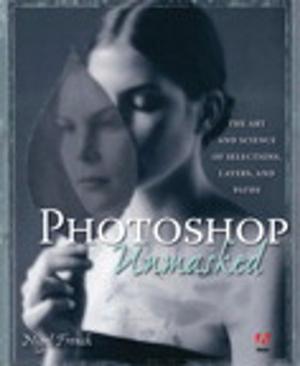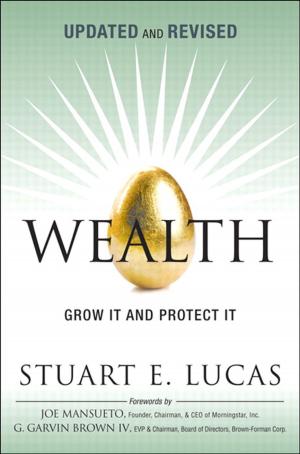| Author: | Robin Williams | ISBN: | 9780132797771 |
| Publisher: | Pearson Education | Publication: | March 15, 2006 |
| Imprint: | Peachpit Press | Language: | English |
| Author: | Robin Williams |
| ISBN: | 9780132797771 |
| Publisher: | Pearson Education |
| Publication: | March 15, 2006 |
| Imprint: | Peachpit Press |
| Language: | English |
It is long overdue that someone took a closer look at the brilliant Mary Sidney. I have a suspicion that Mary Sidney’s life, and especially her dedication to the English language after her brother’s death, may throw important light on the mysterious authorship of the Shakespeare plays and poems.
—Mark Rylance
Actor; Artistic Director of Shakespeare’s Globe Theatre, 1996–2006; Chairman of the Shakespearean Authorship Trust
For more than two hundred years, a growing number of researchers have questioned whether the man named William Shakespeare actually wrote the works attributed to him. There is no paper trail for William Shakespeare—no record that he was ever paid for writing, nothing in his handwriting but a few signatures on legal documents, no evidence of his presence in the royal court except as an actor in his later years, no confirmation of his involvement in the literary circles of the time. With so little information about this man—and even less evidence connecting him to the plays and sonnets—what can and what can’t we assume about the author of the greatest works of the English language?
For the first time, Robin P. Williams presents an in-depth inquiry into the possibility that Mary Sidney Herbert, the Countess of Pembroke, wrote the works attributed to the man named William Shakespeare. As well educated as Queen Elizabeth I, this woman was at the forefront of the literary movement in England, yet not allowed to write for the public stage. But that’s just the beginning . . .
The first question I am asked by curious freshmen in my Shakespeare course is always, “Who wrote these plays anyway?” Now, because of Robin Williams’ rigorous scholarship and artful sleuthing, Mary Sidney Herbert will forever have to be mentioned as a possible author of the Shakespeare canon. Sweet Swan of Avon doesn’t pretend to put the matter to rest, but simply shows how completely reasonable the authorship controversy is, and how the idea of a female playwright surprisingly answers more Shakespearean conundrums than it creates...
—Cynthia Lee Katona
Professor of Shakespeare and Women’s Studies, Ohlone College; Author of Book Savvy
—Mark Rylance
Actor; Artistic Director of Shakespeare’s Globe Theatre, 1996–2006; Chairman of the Shakespearean Authorship Trust
For more than two hundred years, a growing number of researchers have questioned whether the man named William Shakespeare actually wrote the works attributed to him. There is no paper trail for William Shakespeare—no record that he was ever paid for writing, nothing in his handwriting but a few signatures on legal documents, no evidence of his presence in the royal court except as an actor in his later years, no confirmation of his involvement in the literary circles of the time. With so little information about this man—and even less evidence connecting him to the plays and sonnets—what can and what can’t we assume about the author of the greatest works of the English language?
For the first time, Robin P. Williams presents an in-depth inquiry into the possibility that Mary Sidney Herbert, the Countess of Pembroke, wrote the works attributed to the man named William Shakespeare. As well educated as Queen Elizabeth I, this woman was at the forefront of the literary movement in England, yet not allowed to write for the public stage. But that’s just the beginning . . .
The first question I am asked by curious freshmen in my Shakespeare course is always, “Who wrote these plays anyway?” Now, because of Robin Williams’ rigorous scholarship and artful sleuthing, Mary Sidney Herbert will forever have to be mentioned as a possible author of the Shakespeare canon. Sweet Swan of Avon doesn’t pretend to put the matter to rest, but simply shows how completely reasonable the authorship controversy is, and how the idea of a female playwright surprisingly answers more Shakespearean conundrums than it creates...
—Cynthia Lee Katona
Professor of Shakespeare and Women’s Studies, Ohlone College; Author of Book Savvy
It is long overdue that someone took a closer look at the brilliant Mary Sidney. I have a suspicion that Mary Sidney’s life, and especially her dedication to the English language after her brother’s death, may throw important light on the mysterious authorship of the Shakespeare plays and poems.
—Mark Rylance
Actor; Artistic Director of Shakespeare’s Globe Theatre, 1996–2006; Chairman of the Shakespearean Authorship Trust
For more than two hundred years, a growing number of researchers have questioned whether the man named William Shakespeare actually wrote the works attributed to him. There is no paper trail for William Shakespeare—no record that he was ever paid for writing, nothing in his handwriting but a few signatures on legal documents, no evidence of his presence in the royal court except as an actor in his later years, no confirmation of his involvement in the literary circles of the time. With so little information about this man—and even less evidence connecting him to the plays and sonnets—what can and what can’t we assume about the author of the greatest works of the English language?
For the first time, Robin P. Williams presents an in-depth inquiry into the possibility that Mary Sidney Herbert, the Countess of Pembroke, wrote the works attributed to the man named William Shakespeare. As well educated as Queen Elizabeth I, this woman was at the forefront of the literary movement in England, yet not allowed to write for the public stage. But that’s just the beginning . . .
The first question I am asked by curious freshmen in my Shakespeare course is always, “Who wrote these plays anyway?” Now, because of Robin Williams’ rigorous scholarship and artful sleuthing, Mary Sidney Herbert will forever have to be mentioned as a possible author of the Shakespeare canon. Sweet Swan of Avon doesn’t pretend to put the matter to rest, but simply shows how completely reasonable the authorship controversy is, and how the idea of a female playwright surprisingly answers more Shakespearean conundrums than it creates...
—Cynthia Lee Katona
Professor of Shakespeare and Women’s Studies, Ohlone College; Author of Book Savvy
—Mark Rylance
Actor; Artistic Director of Shakespeare’s Globe Theatre, 1996–2006; Chairman of the Shakespearean Authorship Trust
For more than two hundred years, a growing number of researchers have questioned whether the man named William Shakespeare actually wrote the works attributed to him. There is no paper trail for William Shakespeare—no record that he was ever paid for writing, nothing in his handwriting but a few signatures on legal documents, no evidence of his presence in the royal court except as an actor in his later years, no confirmation of his involvement in the literary circles of the time. With so little information about this man—and even less evidence connecting him to the plays and sonnets—what can and what can’t we assume about the author of the greatest works of the English language?
For the first time, Robin P. Williams presents an in-depth inquiry into the possibility that Mary Sidney Herbert, the Countess of Pembroke, wrote the works attributed to the man named William Shakespeare. As well educated as Queen Elizabeth I, this woman was at the forefront of the literary movement in England, yet not allowed to write for the public stage. But that’s just the beginning . . .
The first question I am asked by curious freshmen in my Shakespeare course is always, “Who wrote these plays anyway?” Now, because of Robin Williams’ rigorous scholarship and artful sleuthing, Mary Sidney Herbert will forever have to be mentioned as a possible author of the Shakespeare canon. Sweet Swan of Avon doesn’t pretend to put the matter to rest, but simply shows how completely reasonable the authorship controversy is, and how the idea of a female playwright surprisingly answers more Shakespearean conundrums than it creates...
—Cynthia Lee Katona
Professor of Shakespeare and Women’s Studies, Ohlone College; Author of Book Savvy















